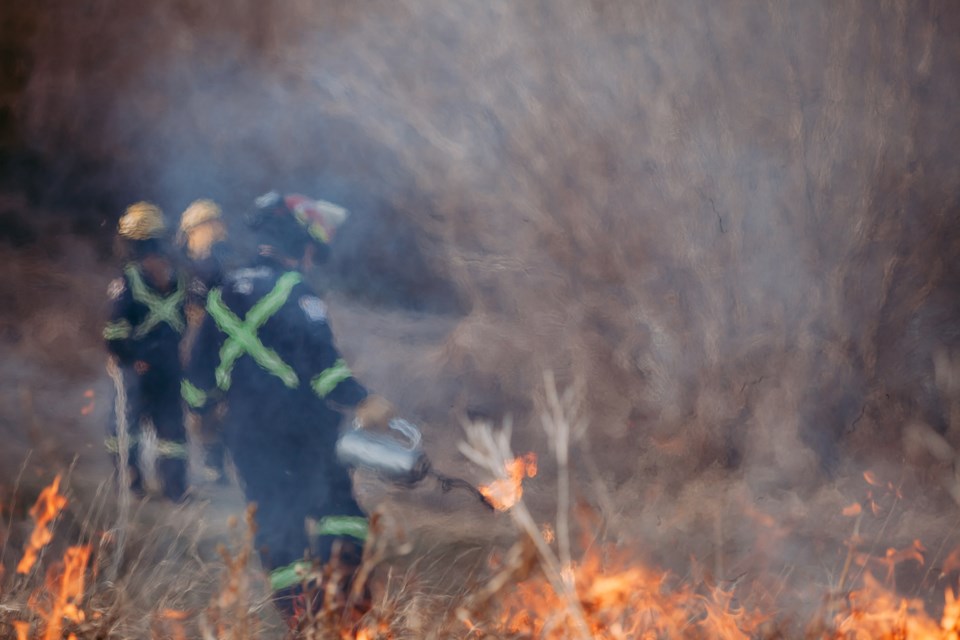Most disasters happen in the blink of an eye.
That’s why it’s important to take appropriate measures before they happen to ensure you and your loved ones are prepared.
Bigger, hotter, more frequent wildfires can threaten the places we live, and wildfire season is hitting the province early. The Better Business Bureau (BBB) serving Mainland BC and Yukon is reminding the public to start taking precautions for wildfire season, and to share tips on what to do if you're unprepared.
"It's so vital to be ready to evacuate your property at a moment’s notice, no matter if you live close to wildfire-prone areas or not," says BBB spokesperson Aaron Guillen. "Do you have the proper insurance for your property if it's damaged by a wildfire? Do you have copies of all your important documents? It's better to ask yourself these questions when you have time to properly think and not feel overwhelmed in the heat of the moment during an emergency."
Here are BBB's top five tips to prepare before and after a fire: Prepare a 72-hour emergency kit. Place your important documents on an upper floor in a fireproof box. This includes passport, birth certificate, SIN card, title insurance, citizenship documents, tax forms and returns, wills, etc. Make sure your kit includes food, water, a first-aid kit, identification, medications, and cash. Know where the water, power, and gas shut off are in your house. Have an evacuation plan, including for your pets. Review insurance available for your property. A homeowners insurance policy will cover damage from fire, including wildfires. If your house is damaged by a fire, there are several coverage types to help repair your home, replace belongings and, in some circumstances, pay for temporary housing if you can’t live in the home. Call your insurance representative to discuss your coverage. If you leave your home due to a mandatory evacuation order, most homeowners and tenants insurance policies will provide coverage for reasonable living expenses for a specified time. Make small improvements to your home to prepare for wildfires. The roof is the most vulnerable part of your home. Homes with wood or shingle roofs are at high risk of being destroyed during a wildfire. Consider building your roof or re-roofing with materials such as metal, clay or tile. Also, try and remove any debris from the roof. Consider installing dual-paned windows with one pane of tempered glass to reduce the chance of breakage in a fire due to wildfire heat. Consider installing screens in all usable windows to increase ember resistance. Find a contractor you can trust to work with by looking for the Sign of a Better Business at BBB.org. Prepare your vehicle for a quick evacuation, if needed. Keep your vehicle fuel tank above half-full when possible. Always roll up the windows to keep out smoke and ash during wildfire season. Place a smaller version of your emergency kit in the car, in case you don’t have time to run in the house and collect your items. Keep an eye for ‘storm chasers’. While many rush to help those in need during natural disasters, some scammers travel from town to town, promising quick home repairs — but often disappear before the work is done, or even started. BBB Scam Tracker has received reports from victims of storm chasers, anywhere from fires to floods. Often, the scammers will take a look at the damage, give an estimate and ask for a portion of the cost of repairs up front. It’s a way for those with very little experience, but a lot of charisma to make a lot of money. Once they get the cash, they are gone. Don’t make a full payment or sign a completion agreement until all work is done to your satisfaction.



